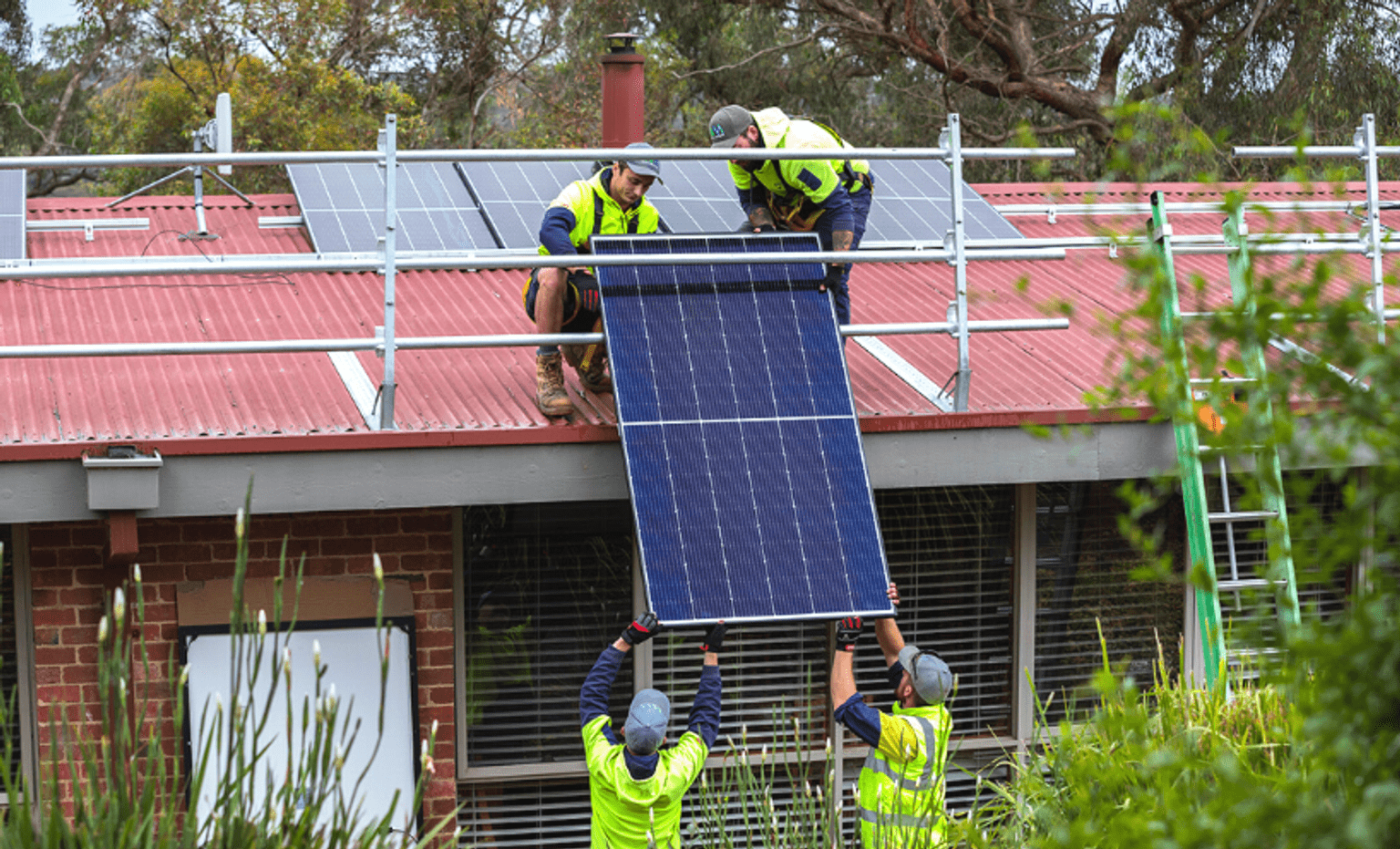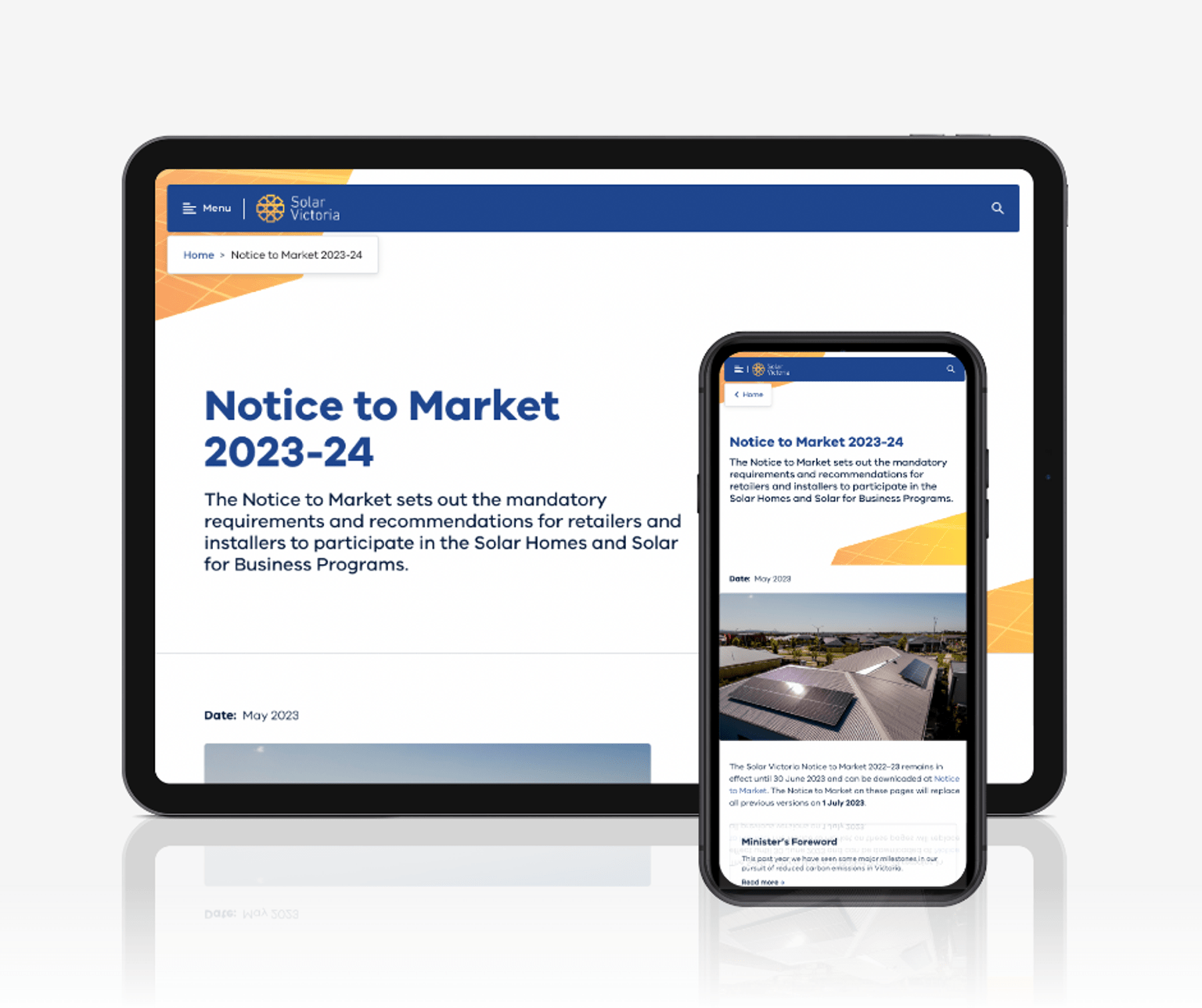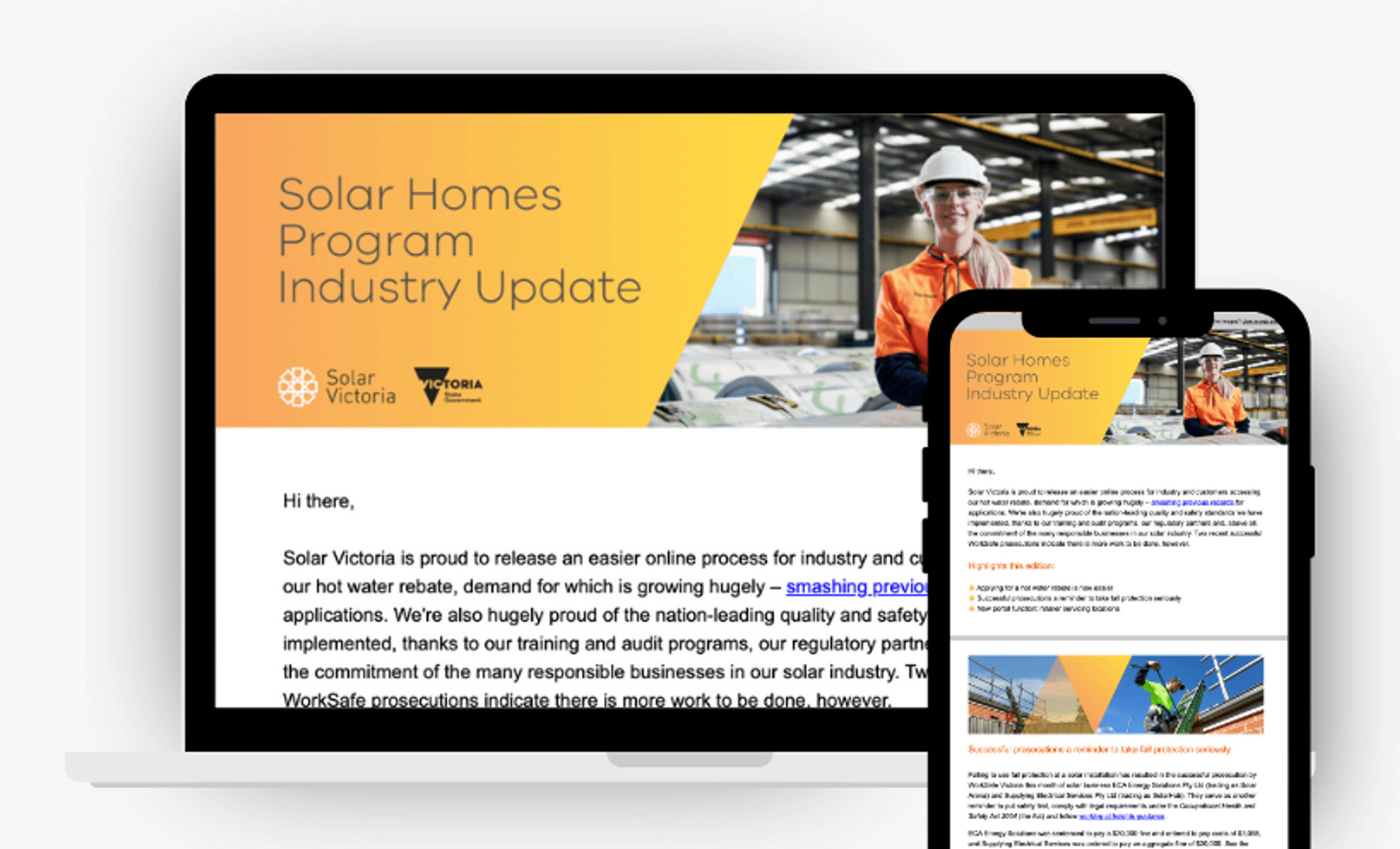What is e-waste?
E-waste is any item with a plug, battery or power cord that is no longer working or wanted. This includes household appliances like televisions and lighting, and includes solar photovoltaic (PV) panels, inverters and energy storage equipment at the end of their useful life.
These items are all identified by the EPA as specified e-waste which poses a greater environmental and human health risk than other types of e-waste.
E-waste contains both valuable and hazardous materials that can be safely disposed of or recovered for reuse.
Ban on e-waste entering landfill
It is a mandatory requirement in the Solar Victoria Notice to Market for retailers and installers in our Solar Homes Program to comply with the Victorian Government’s Waste Management Policy (e-waste).
This policy bans e-waste from entering landfill and aims to eliminate the risk to the environment and human health and maximise resource recovery. Installers and retailers in our programs have an obligation to do everything possible to responsibly manage end-of-life solar products.
Your e-waste obligations
Solar panels must be taken to a lawful e-waste collection point or solar PV recycler.
Solar panels must be recycled at a facility with Environment Protection Authority (EPA) authorisation to sort, store or recover specified e-waste.
Installers with solar panels removed from a residential or commercial building or facility must ensure that the waste is taken to a place authorised to receive that type of waste. Not doing so is an indictable offence with substantial penalties.
The handling, storage and reprocessing of e-waste is regulated under the Environment Protection Regulations 2021 by the Environment Protection Authority Victoria (EPA). Installers should make themselves aware of requirements for the storing and transport of e-waste to recycling facilities.
See the EPA website for more information about priority waste and permissions.
How to responsibly manage solar PV e-waste
Specialist solar PV recyclers can recover up to 90% of a solar panel for reuse.
In Victoria there are several reputable recyclers who reprocess solar PV panels. Installers can ccontact these facilities below or their local government authority for the nearest collection point and more information on the process to recycle solar PV panels:
- Elecsome, Keysborough, Victoria
- Kilmany Resource Recovery Centre, Kilmany, Victoria
- Lotus Recycling, Thomastown, Victoria
- Sircel, Dandenong South, Victoria
Acts, regulations and guidelines
Some of the acts, regulations, standards and guidelines that apply to the safe handling, storing, transferring, transporting and recycling of e-waste are listed below:
Restrictions on the exportation of solar PV
There are restrictions and laws relating to the exportation of solar PV panels that are not working. Installers should think carefully about choosing to sell second-hand panels for export as this may be illegal.
Any international movement of solar PV for recycling or disposal that contains hazardous substances, such as lead and cadmium, is controlled by the Basel Convention. In Australia, the Basel Convention is given effect by the Hazardous Waste (Regulation of Exports and Imports) Act 1989 (Hazardous Waste Act).
An exporter of hazardous solar PV needs a permit under the Hazardous Waste Act to export the panels for recycling or disposal.
For more information, see the Australian Government Department of Climate Change, Energy, the Environment and Water website.
Useful resources
The EPA provides many useful resources to help guide you on the responsible management of e-waste. These include:
- About e-waste: Learn more about what e-waste is, and find the policies and guidelines for safely managing e-waste here.
- Storing e-waste: Find out what you need to do to safely store and transport e-waste here.
- Re-processing e-waste: Find out what you need to do to safely reprocess e-waste here.
- Controlling e-waste hazards and risks: Assess and control risk to help ensure that your storage, transport and/or reprocessing of e-waste prevents harm to human health and the environment here.
About our commitment
Solar Victoria’s programs aim to support Victoria’s emerging circular economy by encouraging best practice approaches and outcomes for PV products and materials at the end of their lifecycle. We are committed to Victoria’s circular economy plan, Recycling Victoria: A new economy, and finding ways to cut solar product waste and boost recycling and reuse of our precious resources.
The Victorian Government is supporting the Breakthrough Victoria Challenge which seeks ideas to tackle solar PV waste and invest up to $10 million in developing scalable innovative panel recycling technologies within Victoria.
More information
- EPA Victoria | epa.vic.gov.au
- Sustainability Victoria | sustainability.vic.gov.au
- WorkSafe Victoria | worksafe.vic.gov.au
Updated




